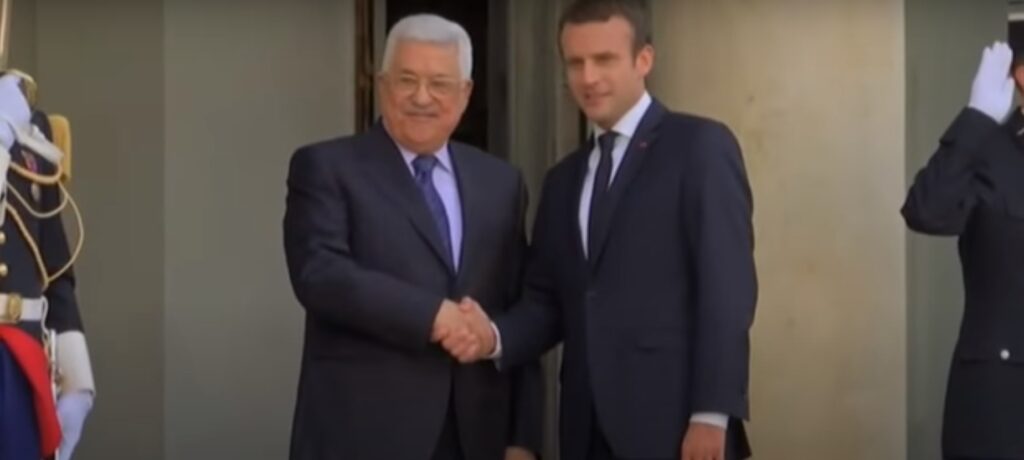The events that unfolded last week in the Jenin refugee camp, following the IDF operation, shocked the PA and its leader.
The expulsion of three senior members of the Fatah movement who had arrived at the camp to participate in the funerals of the terrorists killed in clashes with the IDF was a clear expression of the intense animosity towards the corrupt PA and its leadership in the Jenin area.
Israel and the international community are closely observing the PA’s declining influence on the Palestinian population and its waning security control in northern Samaria. The PA’s economy is also facing significant challenges and is on the brink of bankruptcy.
Even within the ranks of the Fatah movement, there is a growing criticism of Mahmoud Abbas’s policies, which are detrimental to the movement’s popularity among Palestinians and ultimately strengthen the Hamas movement.
In recent days, hundreds of armed Fatah militants have taken to the streets in demonstrations of force through military parades, following Mahmoud Abbas’s orders.
Feeling the ground slipping from beneath his feet, PA Chairman Mahmoud Abbas is actively seeking a way out of the current crisis faced by the PA.
As a first step towards restoring the PA’s authority in northern Samaria, he has deployed 600 security personnel in the city of Jenin.
Additionally, in consultation with Egypt, he has decided to convene a conference in Cairo at the end of this month, which will be chaired by the secretaries of all Palestinian factions.
Egypt has begun sending out invitations to the meeting, and despite the strained relations between the PA and Hamas, both Hamas and Islamic Jihad have been invited.
Ziad Abu Amer, the Palestinian deputy prime minister, stated that the Cairo meeting aims to “consolidate a common national vision and achieve national unity.”
It appears that PA Chairman Mahmoud Abbas believes a positive outcome from this meeting will strengthen his position both among Palestinians and in the eyes of the international community.
A senior Fatah official has emphasized that Mahmoud Abbas seeks to renew his legitimacy as the sole leader of the Palestinian people, enjoying broad support from all Palestinian factions.
Under heavy pressure from Egypt, Hamas and Islamic Jihad, the two major political rivals of Mahmoud Abbas, are considering participating in the Cairo meeting. However, they have outlined certain conditions for their attendance.
On July 11th, Ziad Al-Nakhala, the Secretary General of Islamic Jihad, warned the PA that the continued arrest of Islamic Jihad activists in the West Bank would jeopardize the chances of convening the reconciliation meeting in Cairo.
Hamas and Islamic Jihad demand confidence-building measures from Mahmoud Abbas, such as the cessation of security coordination with Israel and the release of all political detainees held by the PA’s security forces, to enable the Cairo meeting.
However, the PA chairman cannot agree to Hamas’s demand, as it violates the Oslo Accords and could severely complicate the PA’s relations with Israel and the Biden administration.
The PA is unwilling to entertain preconditions for the meeting and demands an end to Hamas’s incitement through the Qatari Al-Jazeera channel.
The PA is even considering taking measures against the Al-Jazeera office in Ramallah due to what it perceives as “biased coverage against the PA.”
The chances of a successful reconciliation meeting in Cairo remain low, even if representatives from Hamas and Islamic Jihad participate. The conflict between Hamas and the PA dates back to 2007 when Hamas forcibly took control of the Gaza Strip, ousting the PA and senior members of the Fatah movement.
Numerous attempts at mediation between Hamas and Fatah have taken place since then, with most ending in failure. In cases where agreements were reached, they were seldom implemented on the ground.
A senior Fatah official likened the Fatah and Hamas movements to two parallel lines that can never intersect.
PA Chairman Mahmoud Abbas’s position has been significantly undermined among Palestinians.
Now, he is attempting to regain support with the assistance of the US, Israel, and Egypt. However, he has become a figure of disillusionment for many, and it remains uncertain whether these resuscitation efforts will succeed.




